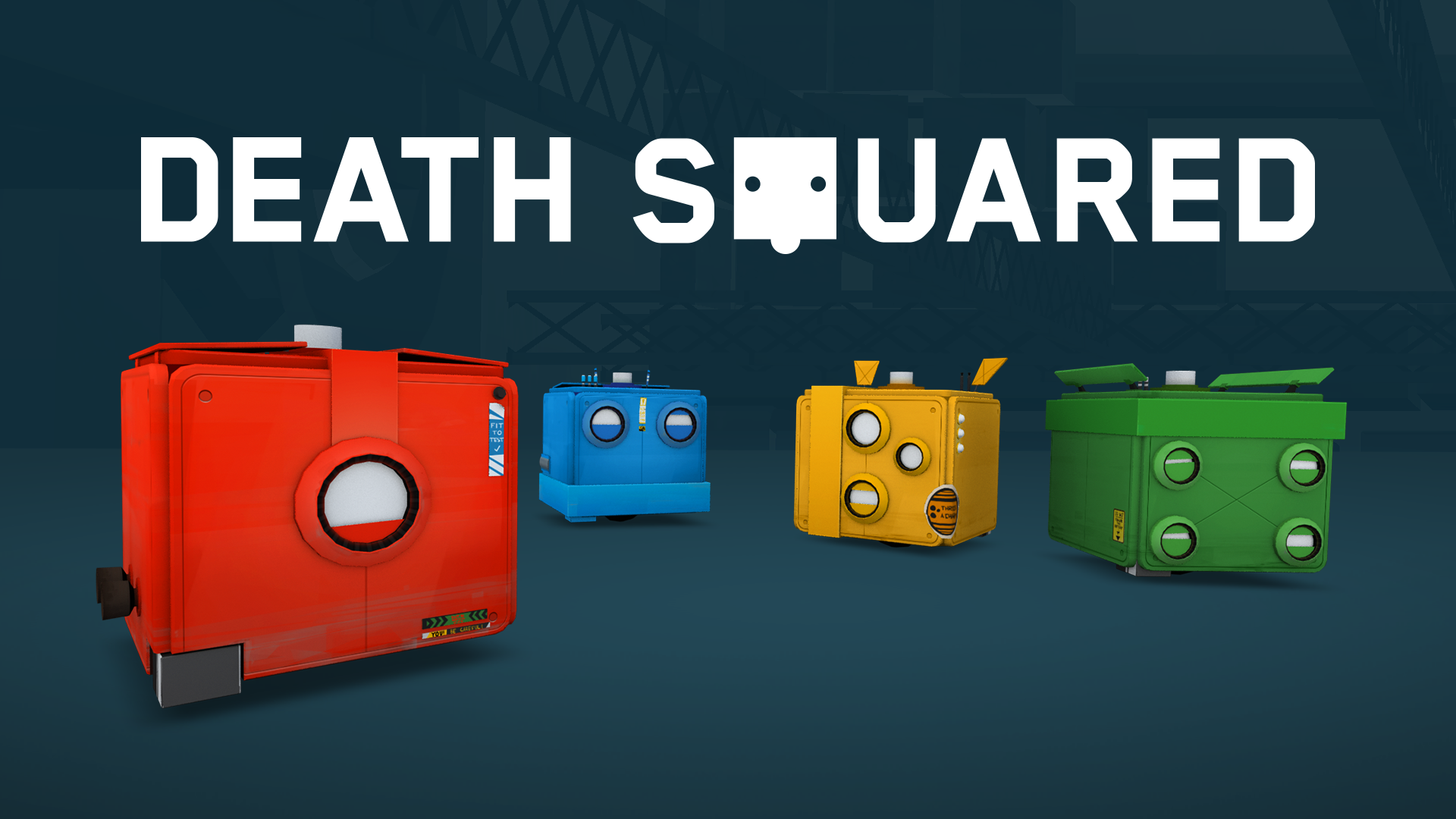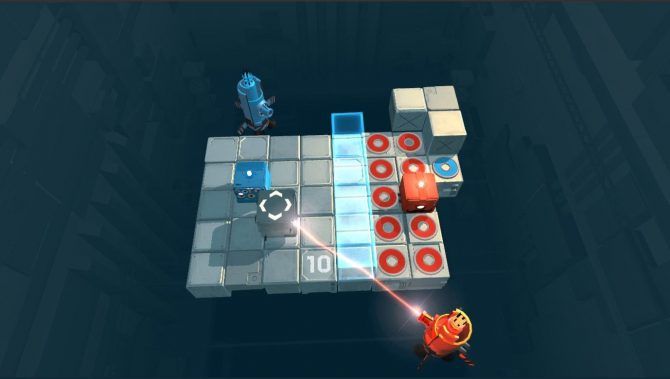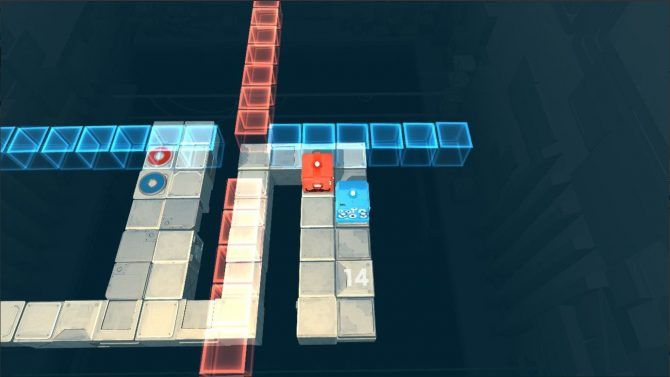Whenever I see a puzzle game, I always get concerned. While they can be incredibly fun and offer some of the best gaming experiences out there, they are usually done poorly. And not in terms of gameplay, but in the difficulty curve (or lack thereof). Make it too hard, and players won't want to keep the controller in their hands or out of their television screens. Make it too easy, and players will be saying to themselves "well, what's the point of this?" It's incredibly hard to make something that fits right in that sweet spot of not too hard, but not too difficult. The good news is, Death Squared is certainly not a failure in that respect, by any stretch of the imagination.
Death Squared was certainly able to keep my attention with its challenging, yet simple level design. The fact that it supports seamless drop-in/drop-out local co-op makes for a great time if your friends come over and you don't want to stop playing. While that all sounds terrific, there is one small point: Death Squared ends up being incredibly unrewarding.
In Death Squared your objective is simple: make sure that each of the two blocks you control are on the circular plate that matches their respective colors. Getting those cubes to where they need to be is where the challenge comes in; it's never going to be a clear shot to the plates. What's even more challenging is the fact that, in certain levels, your movement on a block will create other objects in the level to move, meaning you'll have to manipulate those objects in order to reach your goal. This can, obviously, be incredibly frustrating at times, for obvious reasons.
The controls in Death Squared are one of its high points. On the Nintendo Switch version of the game, each Joy-Con will control one cube. This means that the game is playable in a variety of ways: if you want to play by yourself, you'll control both cubes; if a friend comes over, and wants to join in on the fun, all you have to do is detach the Joy-Cons, and hand it over. Its literally that simple. These seamless transitions from two player to one player are something that more developers need to look into, and at least consider when making a game with drop-in/drop-out co-op.
[pullquote]"What's even more challenging is the fact that, in certain levels your movement of a block will cause other objects in the level to move, meaning you'll have to manipulate those objects in order to reach your goal."[/pullquote]
In terms of story, like most puzzle games nowadays, you're not going to get much. The two cubes you're controlling are test subjects for the company Omnicore, which is pretty similar to every other cliche science-based corporation you see in video games like Portal or ChromaGun. That being said, the lines of dialogue that play at the start of every level (and once in a while during gameplay) were pretty funny if I'm being honest.
Both the music and sound design are equally unsubstantial. A faint techno beat will play in the background while you play through each level, while small noises will be made when activating plates or panels. Besides that, its going to be pretty quiet while you're solving those puzzles.
Another thing I absolutely love about Death Squared is its content size. There are 80 different levels that can be played just by yourself or with another person. That's not even mentioning the 40 additional levels that can be played in the game's party mode. For those math-impaired, that means Death Squared as a whole contains a grand total of 120 different puzzles, each of which can take anywhere between fifteen minutes to an hour to figure out if you're not using any help or hints (depending on your proficiency, of course).
That being said, after you eventually get done with each and every level in the game, you're left with nothing. Since it's a puzzle game, and you know all of the solutions, there's really no point in replaying any of the levels. There's also no level creator, which I believe should almost be a requirement in most puzzle games nowadays. It would not only give creators a chance to build something, but also introduces almost unlimited replayability to the title. I'm hoping that SMG Studios considers adding this in Death Squared's future.
[pullquote]"That all being said, after you eventually get done with each an every level in the game, you're left with nothing."[/pullquote]
My main issue with the game is what happens when you finish a level; nothing. There is no reward, there doesn't seem to be any overall ranking with other players. All you get is a grade on how well you did, which ultimately is only determined by how fast you completed the level. In the end, I didn't feel like it was worth it to play for long periods of time -- there was no incentivization or notable progression through the game. For other people, this may make them not want to continue after playing through just the first few levels.
In short, Death Squared is an incredibly fun puzzle game for Nintendo Switch. While it may be unrewarding for second playthroughs and in-game progression, the fact that there are over a 100 levels means that players who love puzzle games will love this too. Not only that, but the seamless drop-in/drop-out co-op means that whether you want to play by yourself, or with a friend, or three other friends, you'll be able to with the just a push of the Joy-Con release. If you have a love of puzzle games and a Nintendo Switch, or if you're having a get together with your friends soon, Death Squared should be on your short-list.



